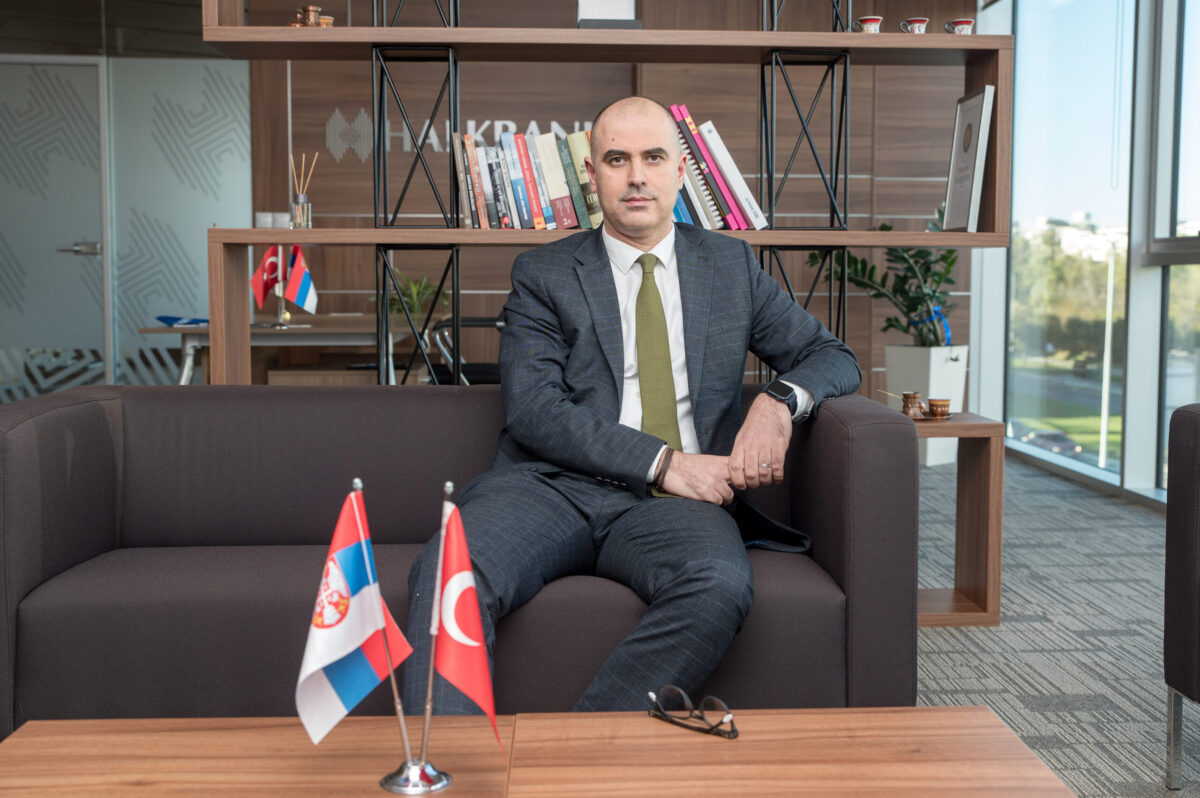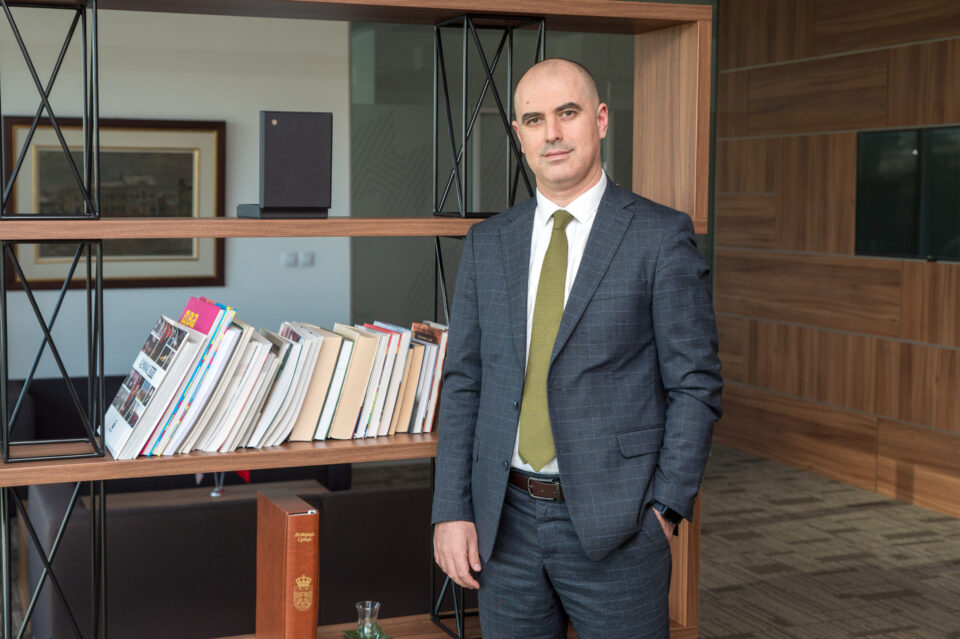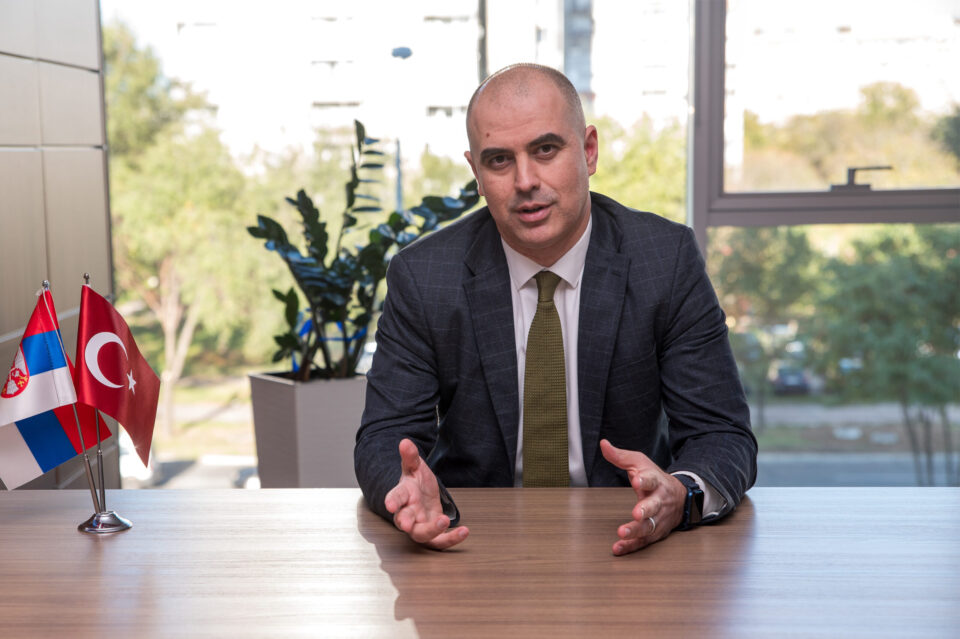The cooperation is increasing daily – thanks to high-level political support, increasing investments, and visitors on both sides

There are hundreds of Turkish companies doing their business in Serbia. What are their main benefits, and how do they work and live in our country – learn from this inspiring interview with Mr. Fatih Karaca, president of the Turkish-Serbian Business Association.
How can you describe recent Turkish–Serbian business cooperation? There is a good history of it, but what’s new recently?
The cooperation is increasing daily – thanks to high-level political support, increasing investments, and visitors on both sides. Our Ambassador, H.E. Hami Aksoy, and our Commercial Counsellor, Yasemin Yüce, are very active and supporting the investors on the highest level. Also, there is Halkbank in Serbia, one of the biggest banks in Türkiye, and the majority of Halkbank is owned by the Turkish Wealth Fund, which gives a secure feeling to Turkish business people. On the other side, I am receiving Serbian companies willing to invest in Türkiye as well, which is new information.
Being on the border of the EU gives a massive logistic advantage to Turkish companies
It looks like there are plenty of Turkish businesses in Serbia. What are the main industries that are covered?
Let me give some numbers; according to PKS records, there are more than 900 companies related to Türkiye – either owners or representatives of Turkish origin. This number excludes dissolved companies. When you check the number of companies, more than 30% of them are “construction of residential and non-resi- dential buildings” and “other specialized construction activities”; 10% of them are registered as “non-special- ized wholesale trade” and other sectors are less than 5%. But when you check the business turnover, according to the end of 2021 figures, these construction-related businesses have just above 2% share, and when you add road construction, this share spikes above 30%. Then we have electrical household appliances, 12%; textile retailers, around 9%; automotive companies, 6%; pharmaceutical companies, 6% and textile companies, 4% shares. As these figures show, by the activity code, so many construction companies – except for road construction – have little effect on total business. The real business effect is road construction, electrical household appliances, textile retailers, and the automotive industry; small number of companies with big effect.“

How easy is a Turkish company to run its business here in Serbia? Are there any obstacles, and what should be done to boost procedures further?
When you check different ease-of-business reports published by different organizations, you can see that Serbia’s ranking is improving yearly. Turkish companies also benefit from this positive trend. The obstacles are also not specific to a country, but in general, digitalization will help solve these problems, I hope. If you asked me this question 11 years ago when I first moved to Serbia, to establish the Representative office of Halkbank here, I could argue that Serbian legislation is more procedural than Turkish legislation. It has sometimes been a setback for investors. But when we come to today, where the first step of doing business becomes managing Compliance issues, I can say that running your business in Serbia is very easy – you just need to communicate well with your legal advisor and accountant. The obstacles can be summarized as common compliance requests (cannot be influenced), working environment differences (can be solved by good advisors), and language barrier (unfortunately, there is not enough English-speaking capacity on the Turkish side, so the number of Serbian-Turkish court translators can be increased).
We should promote Serbia in Türkiye more
What is the major benefit for Turkish companies in the Serbian market?
European Union is Türkiye’s main trade partner, and being on the border of the EU gives a massive logistic advantage to Turkish companies. I always recommend production companies check the possibility of producing “Made in Serbia” branded products in Serbia, which will allow duty-free export to more than a billion people in the world. Also, a stable foreign exchange rate is crucial for precise cost evaluation, as has been the case in Serbia for over a decade.
Are there any new projects that Turkish companies work on here in Serbia?
Several companies are visiting Serbia and analyzing their potential projects, recently on Information Technologies, energy and digitalization sectors. However, as I can see, the current global situation is holding them back from making a faster decision. But we should promote Serbia in Türkiye more so that more companies in Türkiye will be aware of the attractive investment opportunities in Serbia. This is one of the goals of our Association.
Belgrade is heaven, even during the heavy traffic hours
What is the life experience of a Turkish businessman who works and lives in Serbia, from your perspective and from what you learned from your colleagues and managers from member companies? Is Serbia a good place to work and live?
When I meet people for the first time and they ask me if I like living in Serbia, I answer them “No…” then pause a bit and then say, “Because I love her!” This refers to a song from the seventies, Dreadlock Holiday, where the lyrics go as “I don’t like reggae, I love it / I don’t like Jamaica, I love her.” This feeling hasn’t changed since I’ve moved here. I have many reasons, and we share the same opinions with other Turkish friends who live in Serbia. To share a few, one reason is traffic. Many capital and main cities in the world have traffic problem. During my career, I lived in cities where it took me almost 2 hours to reach work and even longer to come back home. Belgrade is heaven, even during the heavy traffic hours. This increases the quality of life enormously. Another reason is the cuisine; very similar or the same type of food saves time and hassle in deciding what to eat daily. I can say that I learned how tasty well-cooked meat can be in Serbia; during one dinner with a Turkish businessman, he was amazed when our waiter was cutting a beefsteak with a spoon instead of a knife! And the most important reason for my experience is the attitude of Serbian people towards Turkish people. We have very similar traditions, family ties, habits… My wife Danica is Serbian, and when I communicate with my in-laws, I see many common traditions – with respect to children, respect for the elderly, respect for social community, etc. I think that we should remember our past to learn from our rights and wrongs, think of tomorrow, how to be better in every way and live today trying to accomplish that better future. So far, I believe that Serbia has a bright future: a lovely country with huge potential, warm and welcoming people, and a great place to work and live, and I’m glad to be here!
